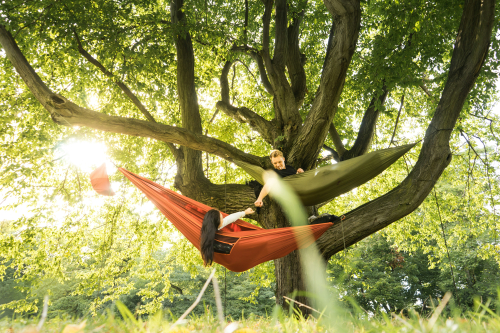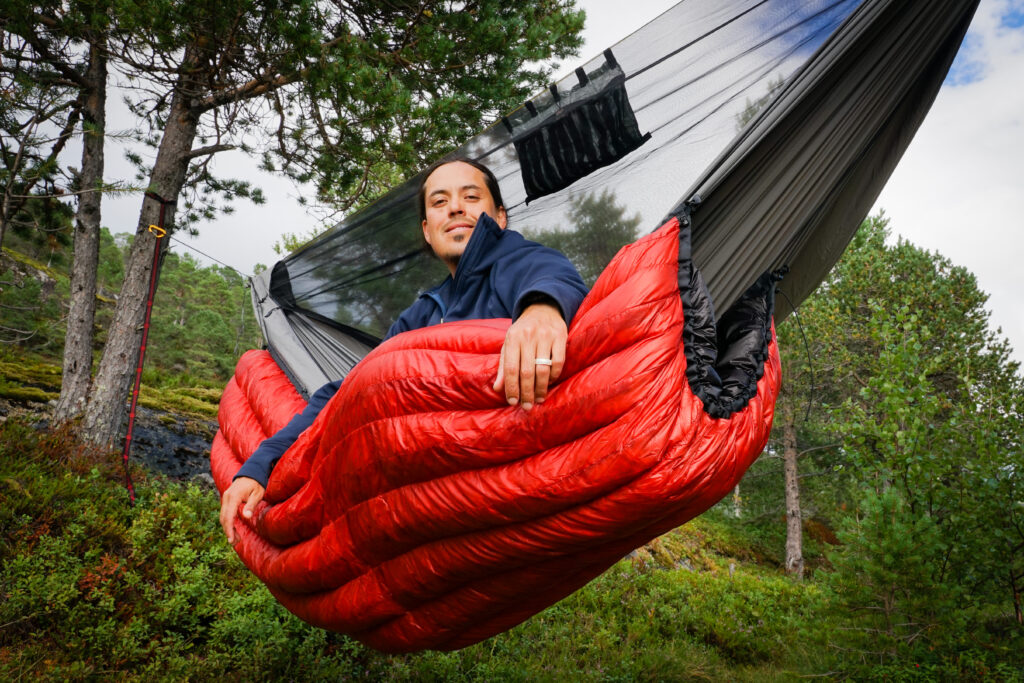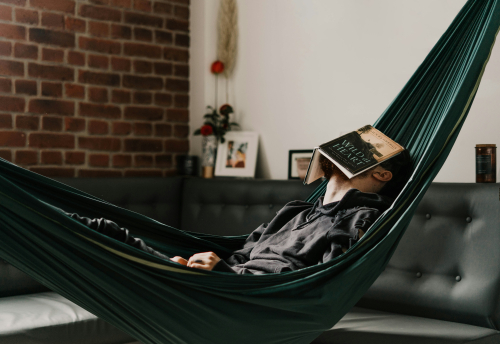How To Sleep Comfortably In A Tent (camping Tips)

When selecting a camping tent, it’s crucial to ensure the size is appropriate for the number of campers. As a general rule, it’s best to choose a tent that’s at least 2 sizes larger than the number of people using it.
This provides extra space for gear, movement, and a more comfortable experience. For backpacking, you can stick to the designated capacity, but for car camping, aim for 25-30 square feet per person.
Ventilation and Weather Resistance
Proper ventilation is key to managing condensation and keeping the tent interior comfortable. Look for tents with mesh panels, windows, and doors that allow for good airflow.
Additionally, consider the weather conditions you’ll be camping in and choose a tent with the appropriate weather resistance, whether that’s a lightweight backpacking tent or a more heavy-duty model for harsh conditions.
Setup Location
Where you set up your tent can greatly impact your camping experience. Choose a flat, dry spot that’s not in a low-lying area where water might accumulate.
Avoid pitching your tent under trees or other structures that could drop debris or snow onto the tent. Take the time to find the perfect spot to ensure a comfortable and safe camping trip.
By considering the size, ventilation, weather resistance, and setup location, you can choose the right tent to meet your camping needs and ensure a enjoyable outdoor experience.
Investing in Quality Sleeping Gear
Sleeping Bag
When it comes to camping, a good sleeping bag is crucial for a comfortable and warm night’s sleep. To ensure you stay cozy, select a sleeping bag rated for the expected temperatures. Consider the material and insulation type for both comfort and warmth. For example, down-filled bags are generally lighter and more compressible but may not perform as well in wet conditions. Synthetic insulation, on the other hand, is more durable and retains warmth even when wet.
Sleeping Pad or Air Mattress
A sleeping pad or air mattress can significantly enhance your camping experience by providing extra cushioning and insulation. These pads come in various forms, including inflatable mattresses and foam pads. When choosing a sleeping pad, check the R-value, which measures thermal insulation. A higher R-value indicates better insulation, keeping you warmer and more comfortable.
Pillow and Blanket
A compact camping pillow or a stuff sack filled with clothes can provide the necessary support for your head and neck. Additionally, having an extra blanket can offer additional warmth and comfort. These simple yet effective items can make a significant difference in your overall camping comfort.
By investing in quality sleeping gear, you can ensure a restful and enjoyable camping experience. Whether you opt for a sleeping bag, sleeping pad, pillow, or blanket, prioritize comfort and warmth to make your outdoor adventure more memorable.
Dress Appropriately for Sleep
Layering
When it comes to dressing for sleep while camping, layering is key. Start with moisture-wicking base layers to keep you dry and comfortable. Then, add layers based on the nighttime temperature. This will allow you to adjust your clothing to suit the conditions without having to change entirely. For example, if it’s chilly, add a fleece or wool layer for extra warmth. If it’s warmer, you can remove a layer to stay cool.
Warm Socks and Headgear
Wearing warm, clean socks before going to bed is essential for a comfortable night’s sleep. Look for socks made from materials like wool, fleece, or synthetic fabrics that retain warmth. Additionally, use a hat or beanie to keep your head warm in cold weather. This will help prevent heat loss and keep you cozy throughout the night.
Change Before Bed
Changing into fresh, dry clothes before bed is crucial to avoid sleeping in damp or sweaty garments. This can help prevent discomfort, chafing, and even skin irritation. Store your day clothes in a dry place inside the tent to keep them clean and dry for the next day. By following these simple tips, you can ensure a comfortable and restful night’s sleep while camping
Create a Comfortable Sleeping Environment
Tent Layout
To ensure a comfortable sleeping environment, keep the sleeping area organized and clutter-free. This includes storing gear outside the tent or in designated compartments. Additionally, consider using a ground cloth or tarp under the tent for extra protection and comfort. This layer can help prevent moisture from seeping into the tent and provide a more comfortable surface to sleep on.
Temperature Control
Maintaining a comfortable temperature is crucial for a restful night’s sleep. Use a hot water bottle or hand warmers in the sleeping bag for added warmth on chilly nights. Conversely, ventilate the tent to reduce moisture build-up and prevent overheating. This can be achieved by opening windows or using a mesh panel to allow for airflow.
Noise and Light Reduction
External noises and light can disrupt sleep and make it difficult to fall asleep. Use earplugs or a white noise app to block out external sounds. For light, wear an eye mask or use a dark-colored cloth to block out any unwanted light. These simple measures can significantly enhance your sleep quality and make your camping experience more enjoyable.
By following these tips, you can create a comfortable and restful sleeping environment that allows you to fully appreciate the beauty of the outdoors.
Maintain a Healthy Sleep Routine
Pre-Sleep Routine
Maintaining a healthy sleep routine involves establishing a calming pre-sleep routine to signal to your body that it is time to wind down. This can include activities such as reading a book, meditating, or practicing gentle stretches. Avoid stimulating activities like watching TV or scrolling through your phone, as these can interfere with your ability to fall asleep. Additionally, avoid consuming caffeine and heavy meals close to bedtime, as these can disrupt your sleep patterns.
Hydration
Staying hydrated is essential for overall health, but it is also important to avoid drinking too much water right before bed. This can lead to frequent trips to the bathroom, disrupting your sleep. Instead, keep a water bottle handy for nighttime thirst and aim to drink most of your water during the day. This will help you stay hydrated without compromising your sleep.
Relaxation Techniques
Relaxation techniques are crucial for unwinding before sleep. Practice deep breathing exercises, gentle stretches, or progressive muscle relaxation to calm your mind and body. You can also use relaxation apps or listen to soothing music to help you wind down. These techniques can help reduce stress and anxiety, making it easier to fall asleep and stay asleep throughout the night.
By incorporating these elements into your sleep routine, you can create a healthy and consistent sleep pattern that leaves you feeling refreshed and rejuvenated.
Enhance Your Camping Experience with Better Sleep
Why Sleep Matters
Sleep is crucial for both physical and mental well-being. When camping, it can be challenging to get a good night’s sleep due to the unfamiliar environment and variable temperatures. However, by following these simple tips, you can ensure a restful night’s sleep and make your camping experience more enjoyable.
1. Block Out Noise and Light
One of the most significant factors affecting sleep is noise and light. Use earplugs to block out external sounds like animal noises or wind, and wear an eye mask to prevent light from entering the tent. These simple measures can significantly enhance your sleep quality.
2. Choose the Right Tent Site
The location of your tent is vital for a comfortable night’s sleep. Ensure it is pitched on a flat, dry surface away from water bodies and insect nests. Also, position the tent door to minimize wind and rain exposure.
3. Dress for Comfort
Dress appropriately for the weather and season. Wear comfortable, breathable clothing and layers to adjust to changing temperatures. This will help you stay warm and comfortable throughout the night.
4. Stay Hydrated and Active
Drink water regularly during the day to avoid dehydration at night. Engage in physical activities during the day to help you sleep better at night. This can include hiking, kayaking, or other outdoor activities.
5. Follow a Bedtime Routine
Maintain your usual bedtime routine to signal to your body that it is time to sleep. This includes activities like reading, meditating, or practicing deep breathing exercises.
6. Use Sleeping Gear Wisely
Invest in a good quality sleeping bag and mattress designed for the expected temperatures. Use a hot water bottle or hand warmers for added warmth and a comfortable sleeping pad for extra cushioning.
By incorporating these tips into your camping routine, you can ensure a restful night’s sleep and enhance your overall camping experience. Whether you are a seasoned camper or a beginner, these simple measures can make a significant difference in your outdoor adventure.
You may also be interested in: What To Expect On Your First Hammock Camping Trip – Hammock
Embark on your next adventure with Hammock Gear’s custom quilts! Tailor your comfort for the wild – choose your style, warmth, and size to craft your perfect eco-friendly outdoor companion, or grab a complete ultralight kit. Made in the USA for unparalleled quality and comfort. Trusted since 2009. Shop Now and tap into a community of nature lovers!⭐
Related Posts
The Best Camping Hammocks of 2024 – A Buyer’s Guide by Hammock Gear
A good camping hammock can completely transform how you experience…
Can Napping Hurt You? Unveiling the Pros & Cons of Daily Zzz’s
Napping, the act of taking a brief sleep during the…


